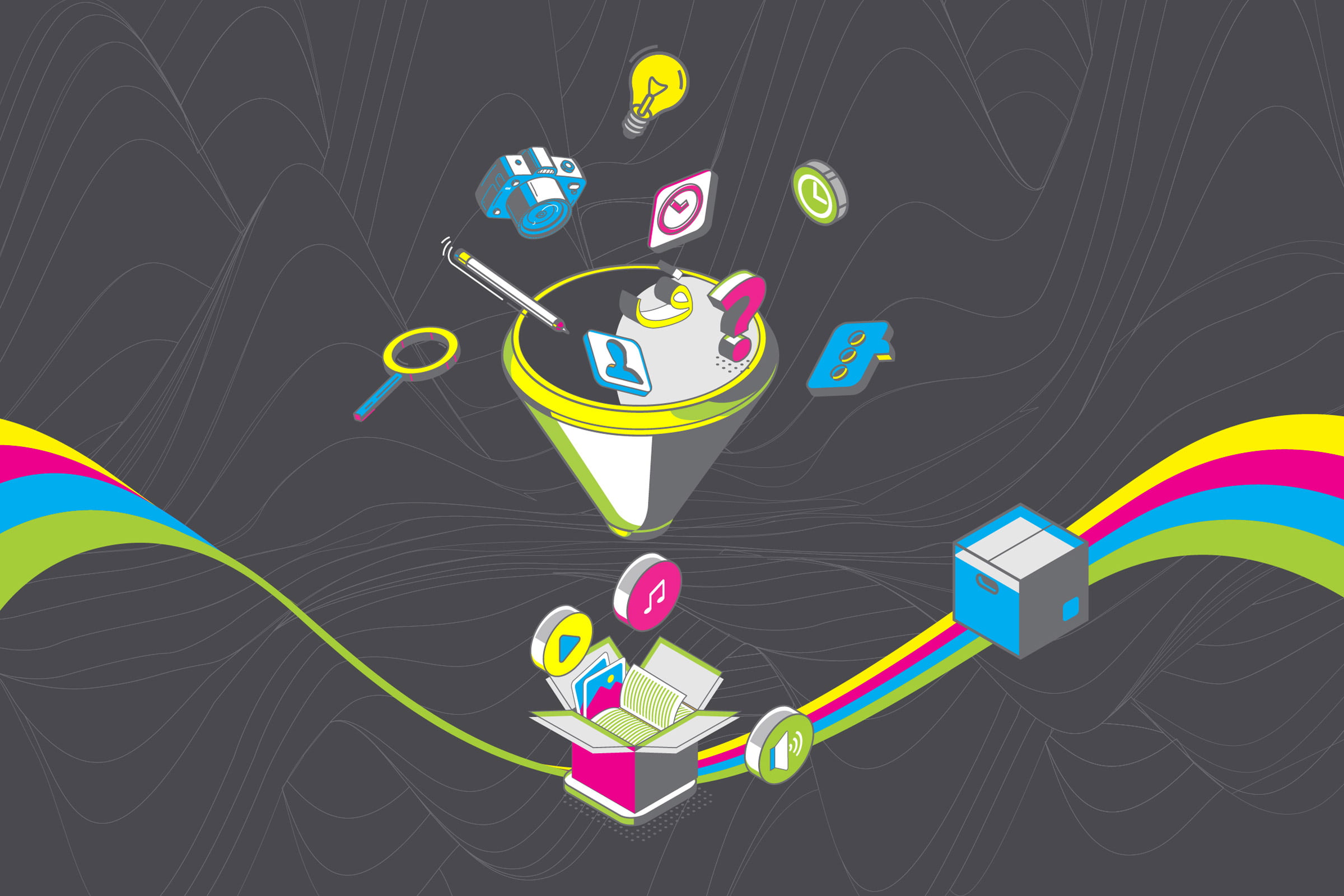Event management in Iran involves having a complete grasp of all logistics leading up to and during an event such as a conference, product launch, or any organized prestigious gathering. Event managers execute the event plans by offering many qualities like managing staff, finances, vendor relationships, etc.
Planning an event can be challenging, and to ace the process, you need to have a correct understanding of the functions, tasks, and responsibilities. In this article, Zigma8 will help you learn all about event management in Iran, involving practical tips to plan an event launch in Iran.
What Is Event Management?
Generally speaking, event management contains various functions for executing large-scale events, including conventions, conferences, concerts, trade shows, ceremonies, festivals, and lectures. It suggests ways of handling the overall logistics of the event, arranging staff, and conducting project management of the event as a unified whole. It might include some additional duties such as managing the budget and the team responsible for each function. It is also about supervising the services of all outside vendors and professionals.
Event Management vs. Event Planning
It is interesting to point out that event management and event planning serve two different functions. Event planners offer vision and other preliminary plans for an event, and event managers execute the details before, during, and after it. For instance, event managers manage the location, reservations, coordinating vendors, hiring staff, and on-site management during the event. Event planners choose event themes and ideas, select the venue, menu planning, or arrange entertainment and guests. These two should work side by side, and their responsibilities may overlap.
How to Plan a Great Event Launch In Iran?
Managing an event can be challenging and exciting at the same time. So, if you know the secrets, planning an event can be a breeze and worthwhile.
Here, we will share those, and this guide will suggest some effective tips that you can follow for any event in Iran. Try these tips right away in building a successful event in Iran.
1. Start Planning ASAP
Begin planning the event in Iran as soon as you possibly can. If the event is large, you should start planning it at least four months in advance, but six months in advance can be a more ideal timeframe.
For smaller events, aim for at least one month in advance to plan it. By planning early, you will get more options for different event elements like talent options, venues, sponsorship options, marketing options, and so on.
2. Determine the Goals and Purpose
Before planning an event in Iran, it is important to answer some basic questions:
- Why is the event hosted?
- What is the purpose of the event?
Now, based on the goals, you can decide what type of event you will organize and indicate the objectives. For instance, if you are planning to launch a new product in Iran, the objectives can be:
- 3000 social media follows on the social media page of the brand
- 1000 preorders for the launched product
- 2000 social media interactions and engagements
Set the determined objectives with quantifiable metrics so this way, you will be able to measure progress in reaching them.
3. Establish a Budget
Estimating the budget as soon as possible is another tip for managing an event in Iran. The budget will indicate different elements of the event. Create an outline of your budget estimation, including critical elements as follows:
- Venue
- Catering
- Decoration
- Entertainment
- Marketing
- Labor
- Contingencies
Once some vendors are secured, make sure to update the budget with your actual spending. This way, you will be able to evaluate the event’s performance.
4. Identify the Target Audience
Another important factor to consider for managing Iran events is defining and understanding target audiences. You can define the target audiences based on the event’s objectives and goals. Gather useful information about the target attendees, demographic data, behavior, and mostly what motivates them to join the event or react to it potentially. Also, try to identify potential obstacles in order to prevent them from happening.
5. Choose the Ideal Venue
For an in-person event, choosing the best venue will make or break your success. If it is a recurring event, the date of the event might already be set; therefore, the venue option can be limited. For a brand new event when you are free to decide the event date, consider the following elements:
- For a big event, make sure to have at least 4-6 months in advance to secure the place.
- Avoid school, religious or national holidays since venues tend to be more expensive at these times.
- Check the dates and details with the key speakers, VIP guests, and other influential participants.
Consider the following tips when choosing the ideal venue for an event in Iran:
- Size: Depending on the number of attendees and type of your event, choose the best size.
- Location: For a local event, it is better to choose a location near the target attendees.
- Parking: The venue should have enough parking or easy enough access via public transportation.
- Accessibility: Choose accessibility factors like washrooms, accessible entrances, elevators, interpreters, etc.
- Acoustics: The acoustics condition of the venue can be really important for conferences and keynote speaking sessions.
- Costs: Try to consider hidden costs and possible cancellation fees.
6. Write the Event Plan
After estimating the budget and having a rough timeline for the event, develop a written event plan as a roadmap for your success. It will help your team and coordinators secure talents and sponsorships. The event plan in Iran must include information about the venue, logistics, catering, speakers, talents, presenters, timeline, schedule entertainment, promotion plan, registration magnetism, sponsorship, and volunteer responsibilities. Include all the details such as required contracts, insurance policies, permits, and the logistics of each different element.
7. Create a Strong Brand
During managing an event in Iran, it is important to make sure it stands out amidst the competition. Having a unique and easy-to-remember event name. After having a memorable name, consider the following factors:
- The UVP or unique value proposition of the event.
- The purpose and the objective of the event.
- The main components of the event.
- The events’ and direct competitors’ names.
- A strong and unique logo for the event
- A tagline for the event (a short but unique slogan describing the event)
8. Establish a Team
It is important to share the load of managing an event with a special team. An event team can be assigned roles and responsibilities for different tasks and functions. The common roles in an event team can be as follow:
- Venue Management
- Speakers/Talents
- Catering
- Publicity and Marketing
- Staff and Volunteers
By assigning roles to various teams, you can ensure accountability to every event team member; it will improve productivity and increase the chance of success in Iran.
Build a Marketing Plan
In addition to taking care of the mentioned details, you must consider how you are going to market the event, and in event marketing in Iran, it is best to divide the marketing efforts into different phases:
- Pre-launch: Create campaigns on social media, email marketing, and other channels to start generating buzz for the event.
- Early Announcements: Selling tickets or offering announcements to build awareness and secure word-of-mouth advertising.
- Headliner Announcement: Announcing the keynote speakers and headliners.
- Additional Announcement: Announcing VIP speakers, topics, and interesting subjects.
- Last Call: Last advertising or announcing of the event.
- Registration Closing: Ending the registration.
- Post-event: “Thank You” campaigns, sending post-event surveys, etc.
There are plenty of channels you can use to market the event like an advertisement, social media, marketing, sending an event press release, email marketing, and so on.
Another approach to designing the best marketing effort is to go based on your target attendees, their online behavior, how they find out about the events, what channel they spend most of their time on, etc. Conduct market research to achieve the most reliable results.
To sum up, event management requires excellent organizational skills to succeed. The ability to multitask along with top-notch organization comes from the need for efficient time-management skills. Having the ability to prioritize and stay on task will lead to a successful event. Event management requires seeing the vision through the event from execution to the very end, which calls for persistence, creativity, and flexibility.
Project management in Iran is a key element and involves managing functions and teams of people. Interaction with individuals at all levels is a part of this process. Therefore being comfortable, personable, and a strong communicator will help develop relationships towards a great event.
Now that you know all about event management in Iran, are you ready to plan your next great event? If you want to host an event in Iran, why not reach out to us? Zigma8 is an advertising agency with a long-lasting reputation for creating and managing international events for the largest brands in the world. Having a team of experts who know about the local market, are familiar with the audiences’ tastes, and have a reliable name in collaborating with the best of the market will be your winning ticket.
Check out our latest event management in Iran and hit us up if you want to be remembered for your one-of-a-kind events.










